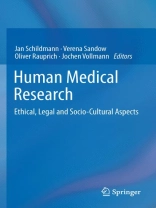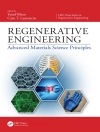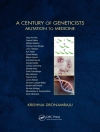Medical research involving human subjects has contributed to considerable advancements in our knowledge, and to medical benefits. At the same time the development of new technologies as well as further globalisation of medical research raises questions that require the attention of researchers from a range of disciplines. This book gathers the contributions of researchers from nine different countries, who analyse recent developments in medical research from ethical, historical, legal and socio-cultural perspectives. In addition to reflections on innovations in science such as genetic databases and the concept of “targeted therapy” the book also includes analyses regarding the ethico-legal regulation of new technologies such as human tissue banking or the handling of genetic information potentially relevant for participants in medical research. Country and culture-specific aspects that are relevant to human medical research from a global perspective also play a part. The value of multi- and interdisciplinary analysis that includes the perspectives of scholars from normative and empirical disciplines is a shared premise of each contribution.
Зміст
Introduction.- British Responses to Nazi Medical War Crimes.- History and its Relevance in the Development and Teaching of Research Ethics.- Human Embryo Research and Islamic Bioethics: a View from Iran.- From Farming to Pharming: Transcending of Bodily Existence as a Question of Medical Ethics in an Intercultural Context.- Rethinking the Therapeutic Obligation in Clinical Research.- Biomedical Research in Developing Countries and International Human Rights Law.- Research Involving Human Subjects and Human Biological Material from a European Patent Law Perspective. Autonomy, Commodification, Patentability.- The Development and Validation of a Guide for Peruvian Research Ethics Committees to Assist in the Review of Ethical-scientific Aspects of Clinical Trials.- Conflict of Interest in Medical Research: What can Ethics Contribute? Research Ethics in Genomics Research: Feedback of Individual Genetic Data to Research.- Regulating “Higher Risk, No Direct Benefit” Studies with Children: Challenging the US Federal Regulations.- A Paradigm Change in Research Ethics.- Translation of Cancer Molecular Biomarkers: Ethical and Epistemological Issues.- Rethinking the Ethics of Human Biomedical Non-Interventional Research.












